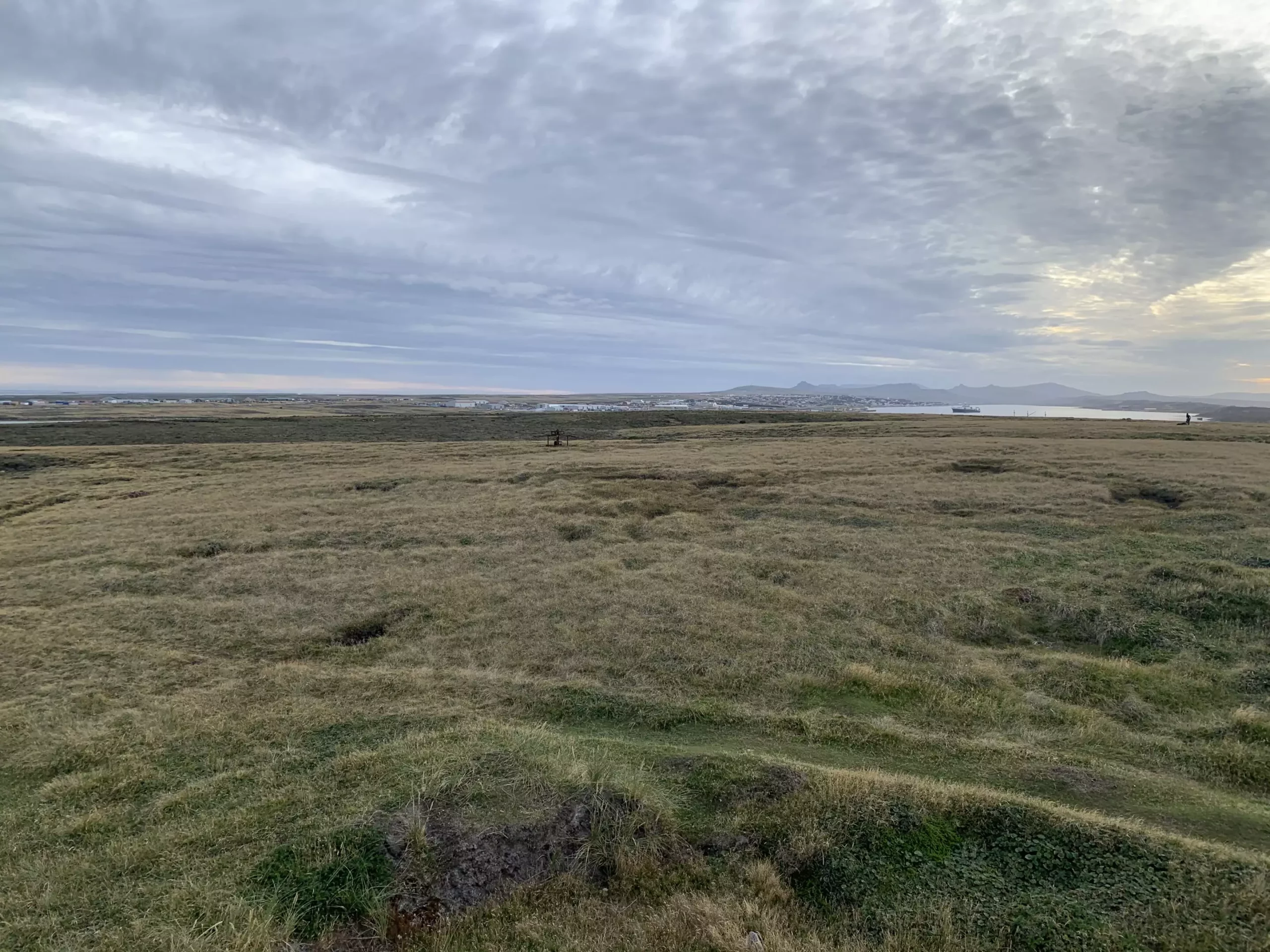In a remarkable convergence of serendipity and scientific inquiry, researchers from the University of Southampton have unearthed evidence indicating that the rugged, treeless landscape of the Falkland Islands was once blanketed in a lush rainforest. This groundbreaking study, led by Dr. Zoë Thomas, has unveiled a verdant past that stretches back approximately 30 million years, challenging our contemporary understanding of the region’s ecological history. The findings, published in the journal Antarctic Science, stemmed from a chance encounter in Port Stanley, the capital of the Falklands, where local builders inadvertently exposed remnants of a prehistoric ecosystem during construction activities.
The revelation that a vibrant forest thrived in an area now characterized by its windy, barren terrain is not only astounding but also serves as a poignant reminder of the dynamic nature of our planet’s environments over geological time. Through discussions with community members, the research team learned about the discovery of intact tree remains and fossilized pollen at a construction site dedicated to a new care home. Such conversations highlight the invaluable contributions of local knowledge and collaboration in scientific endeavors.
Upon learning about the extraordinary find, Dr. Thomas and her team collaborated with the South Atlantic Environmental Research Institute (SAERI) and embarked on a meticulous investigation. Excavations at Tussac House near Stanley Harbour revealed a deep layer of peat packed with prehistoric wood—remarkably preserved as if freshly buried. This initial excitement quickly transformed into scientific inquiry as researchers grappled with the paradox of finding ancient trees in a region that has not supported such flora for millions of years due to its harsh climatic conditions.
To delve deeper into this enigma, samples from the peat were transported to the University of New South Wales in Australia, where modern analytical techniques enabled the team to examine the wood at a microscopic level. However, conventional radiocarbon dating methods proved insufficient due to the advanced age of the samples. Instead, the team turned to pollen analysis—a strategy that underscored the adaptive ingenuity of scientific practice. By examining pollen spores found alongside the tree remains, the researchers could narrow down the age of the forest to between 15 and 30 million years.
The Falkland Islands, a British overseas territory situated roughly 8,000 miles from the UK, present a stark contrast to the climate and ecosystem we observe today. Presently known for their cold, wet, and windswept conditions, the archipelago was once graced by a milder climate conducive to supporting a rainforest reminiscent of the lush landscapes found in modern-day Tierra del Fuego. This prehistoric rainforest, while different from the tropical jungles of the Amazon, contained a rich tapestry of flora and fauna that thrived in a climate that was both cooler and wetter than the current environment.
The trees that once flourished on the islands were likely carried by the strong westerly winds that emanated from expansive southern hemisphere rainforests, now reduced to mere remnants of their former glory. Many of the species that existed during this epoch are now extinct, leaving behind tantalizing clues about the evolutionary trajectories of terrestrial life in this remote region.
Unraveling the Mystery of Extinction
As the research team reflected on their findings, the question of what led to the decline of the Falklands’ rainforest emerged as a focal point for inquiry. While definitive answers remain elusive, it is plausible that climatic shifts, characterized by cooler and drier conditions, played a critical role in the transformation from abundant woodland to the current peatlands that define the region’s landscape. This transition mirrors broader global changes during crucial periods in Earth’s history, underscoring the interconnectedness of climate and ecosystem evolution.
Dr. Thomas emphasizes the serendipitous nature of their work, expressing gratitude for the welcoming spirit of the islanders who facilitated the recovery of these ancient relics. The discovery not only enriches the scientific narrative of the Falkland Islands but also serves as a testament to the importance of community engagement in the pursuit of knowledge. Without the insights offered by local residents, these astonishing finds might have remained hidden beneath layers of peat, lost to time.
Looking ahead, the implications of this research extend beyond mere academic interest. The team hopes that their findings will galvanize further exploration of the region’s geological history and contribute to broader conservation efforts. Understanding the ecological legacy of the Falkland Islands can provide critical insights into how ecosystems respond to climate change, informing not just historical narratives but also current conservation strategies.
As scientists continue to piece together the puzzle of the Falklands’ prehistoric past, their work stands as a reminder of both the fragility and resilience of life on Earth. It invites all of us to reflect on our environment, its history, and the potential for rediscovery that lies beneath our very feet.

